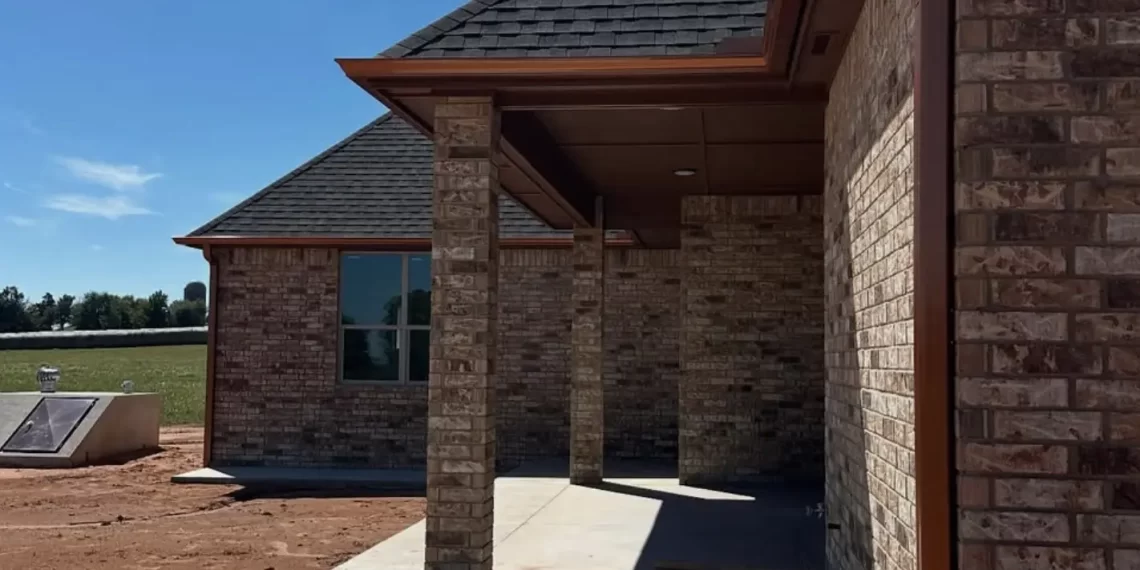What not to use to clean concrete?
Concrete is one of the most versatile and durable materials out there, from driveways and patios to garage floors and polished concrete. But improper cleaning methods can damage this amazing material and leave stains, discoloration or structural weakening. Concrete is tough but it’s also porous so it can absorb bad stuff and chemicals if you use the wrong cleaning products.
In this guide we’ll tell you what not to use to clean concrete surfaces, why and provide effective cleaning methods to keep your concrete looking great for years to come.
Proper Cleaning Matters for Concrete
What Not to Use to Clean Concrete Surfaces
Bleach or Chlorine Bleach
Bleach is often marketed as a powerful cleaner but it’s not suitable for concrete cleaning. Bleach can:
- Discolor polished concrete or stained concrete floors.
- Damage protective coatings and leave the surface open to future stains.
- Kill nearby plants and harm aquatic life if rinsed into drainage systems.
Alternative Cleaning Method: Use oxygen bleach as a safer option for mildew stains or sanitizing concrete.
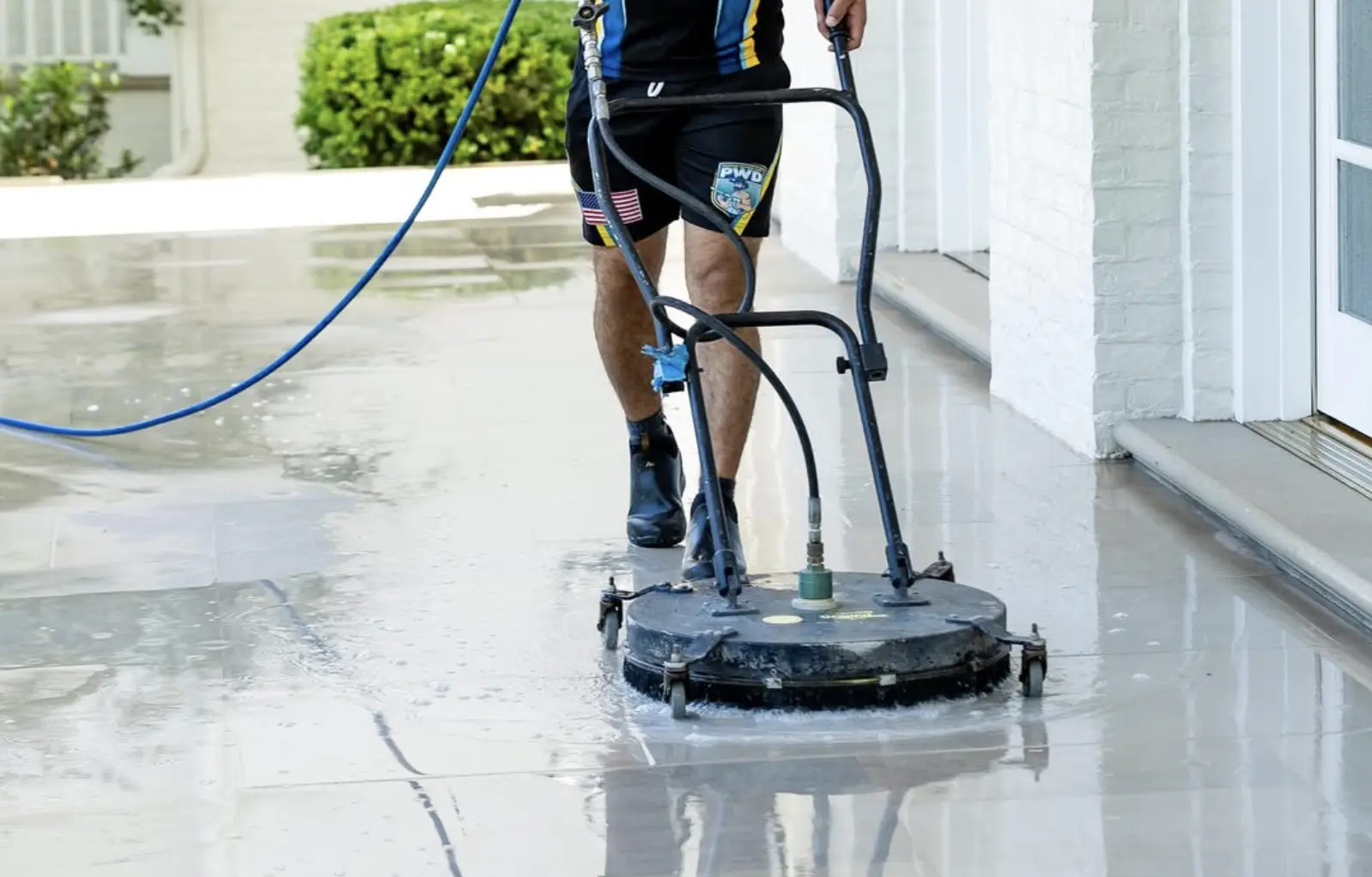
White Vinegar and Other Acidic Cleaners
Acidic cleaners like white vinegar, hydrochloric acid and Muriatic Acid can be very damaging to porous concrete surfaces. These substances:
- Cause acid etching which weakens the surface and makes it rough and uneven.
- Strip away protective coatings or concrete sealers and leave the surface open to dirt and water penetration.
- Discolor decorative or polished surfaces permanently.
Alternative Cleaning Method: Use natural cleaning solutions like a baking soda mixture with warm water for a gentle and effective way to remove stubborn stains.
Harsh Abrasive Tools
Wire brushes, metal brushes and abrasive cleaners may seem to work but can:
- Scratch and wear polished floors and make them prone to oil and dirt stains.
- Damage smooth or decorative concrete permanently.
Alternative Cleaning Method: Use a nylon-bristled brush, stiff-bristle brush or a soft bristle broom for delicate or decorative concrete.
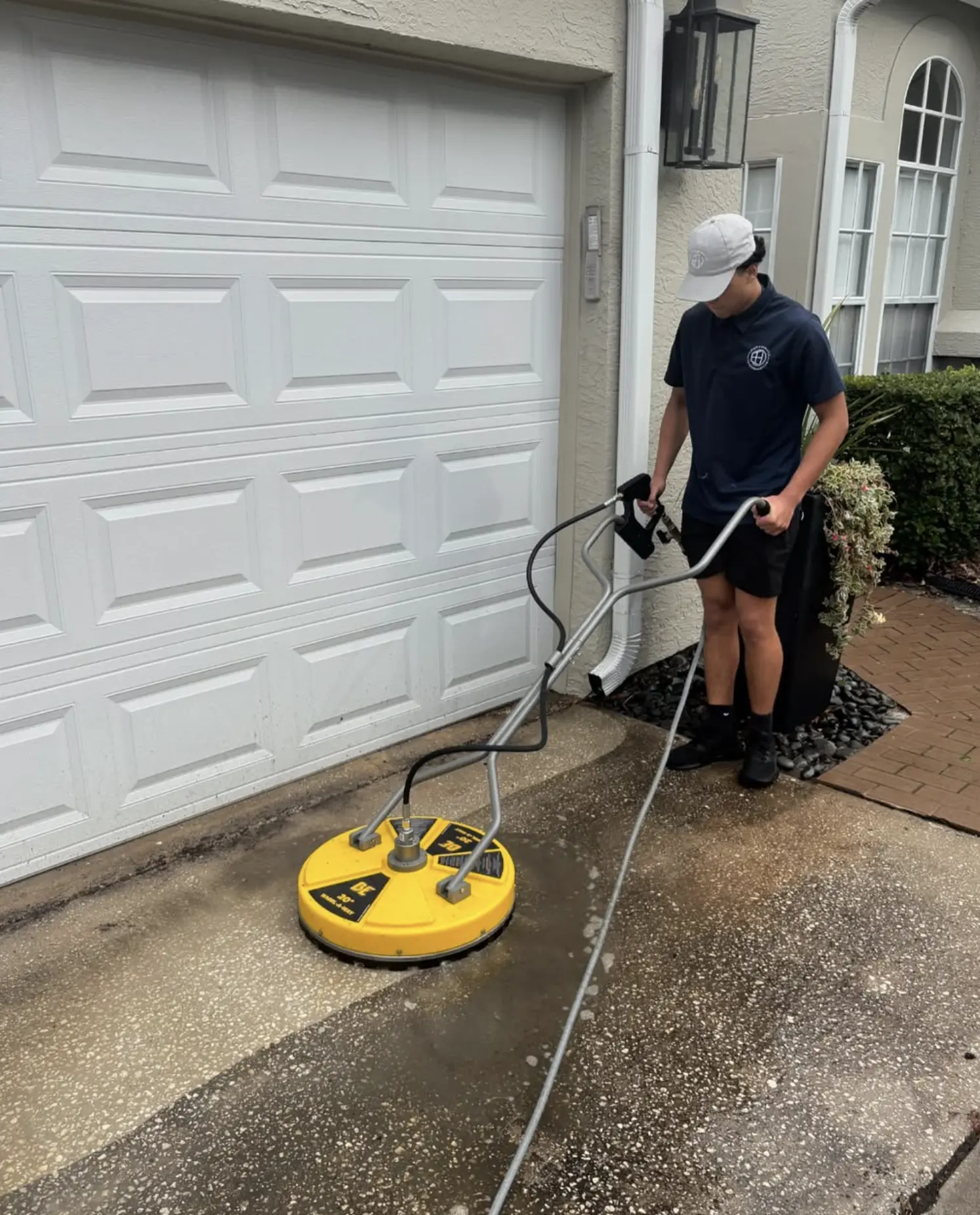
Strong Chemicals and Solvents
Products like acetone, paint thinner or industrial strength cleaners in concentrated form can:
- Break down the concrete’s composition.
- Leave behind a residue that attracts dirt making the surface slippery or sticky.
Alternative Cleaning Method: For deep cleaning use eco-friendly, neutral cleaners or concrete specific cleaning products for regular maintenance and tough jobs.
High Pressure on Pressure Washers
Pressure washing is a popular way to clean exterior surfaces but misuse can:
- Surface erosion especially on older or untreated concrete.
- Cracks or chips in concrete patios or garage floors.
Alternative Cleaning Method: Set the pressure to 2000–3000 PSI and use a fan nozzle to spread the water flow evenly, to minimize damage.
Oil Based Cleaners
Oil based cleaners leave behind a residue that not only attracts dirt but also makes the surface slippery and a safety hazard.
Alternative Cleaning Method: Use a liquid dish soap with hot water to clean oil stains, tyre marks and grease stains.
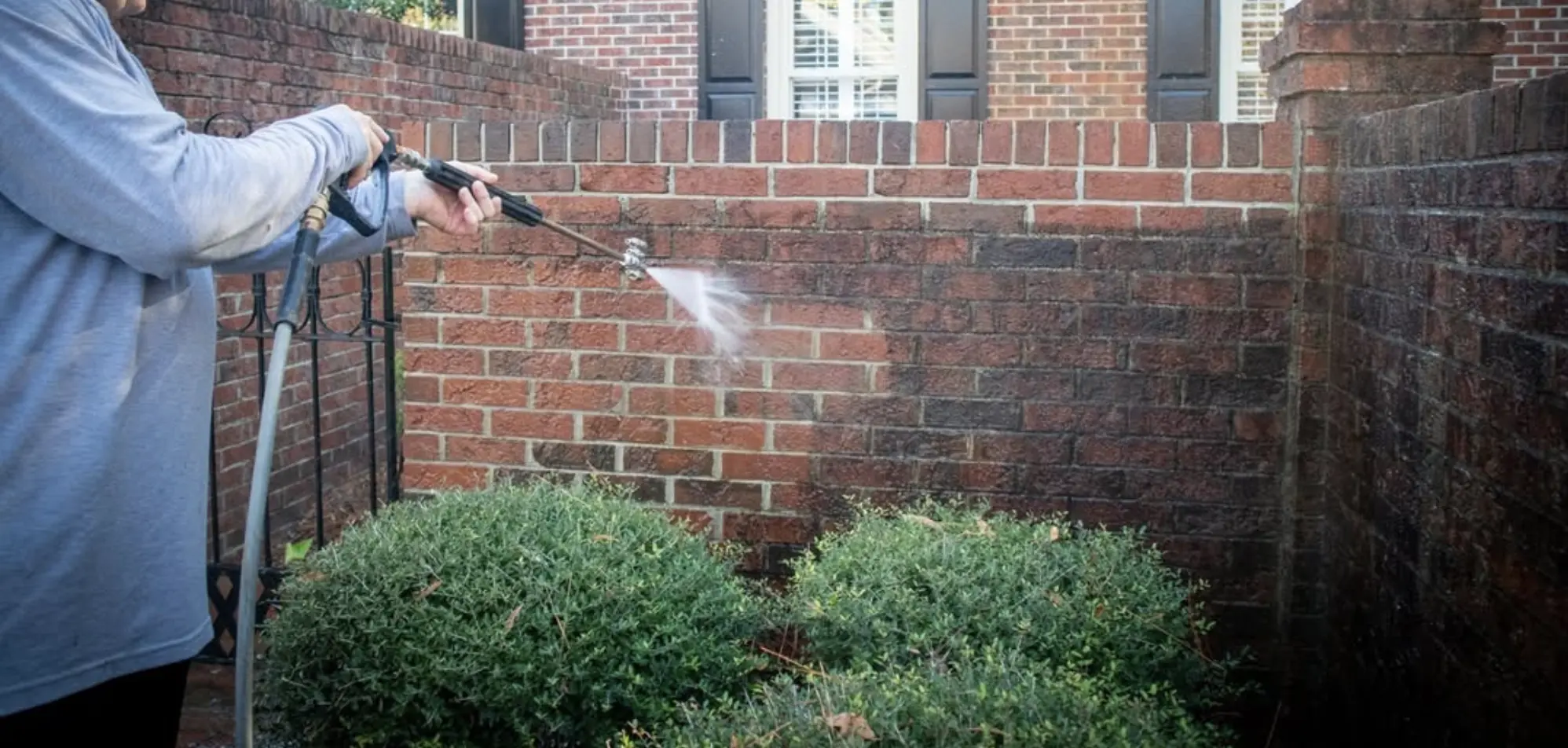
How to Clean Concrete Properly
1. Surface Preparation
Sweep away loose dirt and debris with a push broom or vacuum cleaner. For exterior surfaces pressure wash at a low setting.
2. Choose the Right Cleaner
For deep stains use a mixture of baking soda and water or a concrete specific cleaner. Avoid acidic or abrasive cleaners.
3. Apply the Cleaner
Use a stiff bristle brush or a soft bristle broom to scrub the surface. Focus on stubborn stains and high traffic areas like garage floors or driveways.
4. Rinse with Water
Rinse the concrete with fresh water to remove all the cleaner and prevent residue buildup.
5. Seal the Surface
Apply a sealer to protect against future stains, water damage and foot traffic wear.
When to Call a Pro?
Call a professional cleaning company if:
- You have stubborn stains or heavy dirt buildup.
- You have specialized finishes like polished concrete or decorative concrete.
- You don’t have the time, tools or expertise to do the job.
- You want to clean the entire surface and protect for the future.
More Tips
- Regular Cleaning: Clean every 6–12 months to prevent buildup.
- Avoid Harsh Chemicals: Use natural cleaners or products specifically for concrete cleaning.
- Protective Gear: Wear safety goggles, gloves and protective clothing when cleaning.
- Tough Stains: Use a rotating brush or concrete cleaning service with chemicals for deep cleaning.
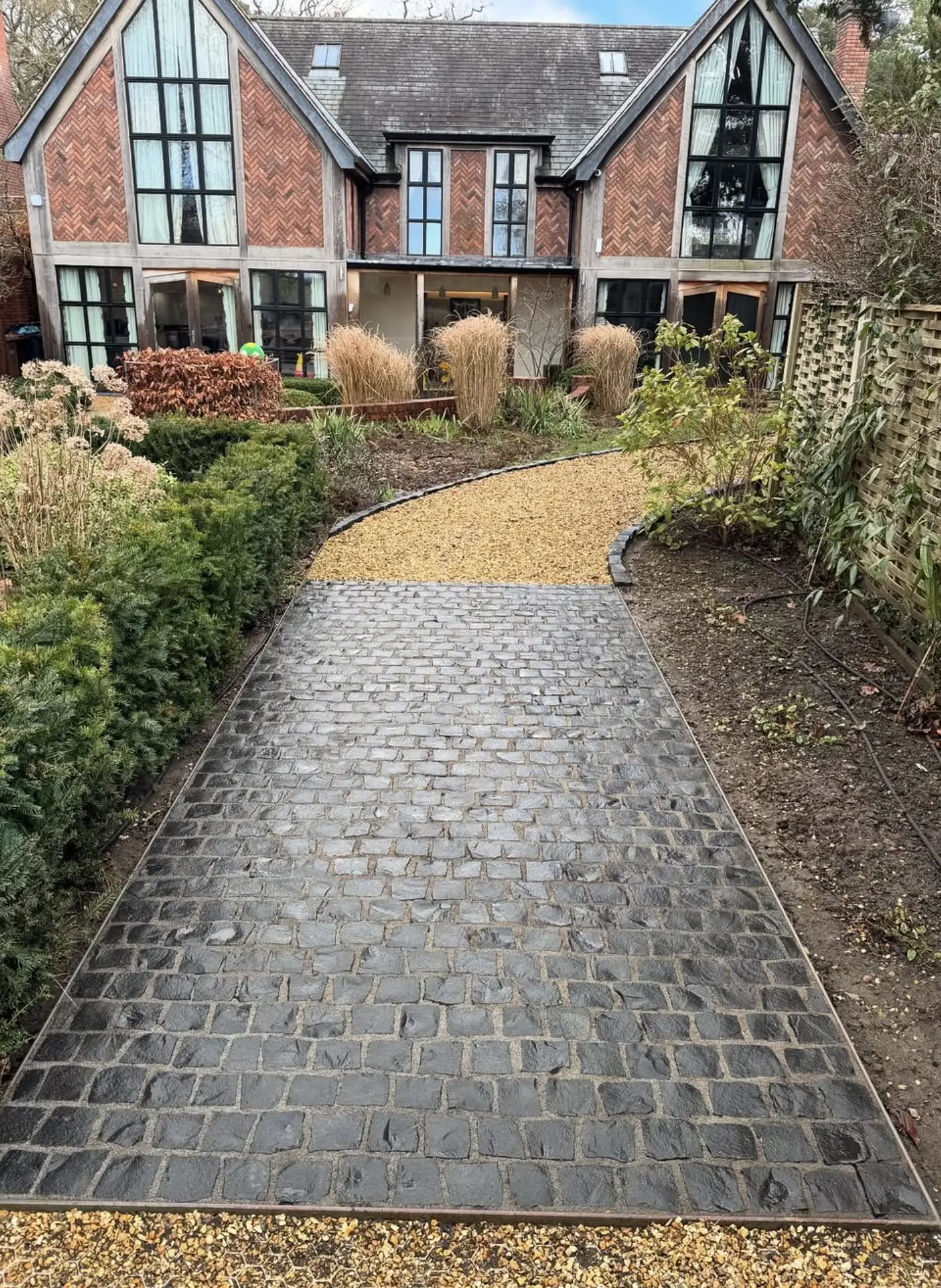
Conclusion
Concrete is a great material but needs to be taken care of to keep its surface and durability. Don’t use harsh products like bleach, acidic cleaners and abrasive brushes. Instead use neutral cleaners, natural cleaners and regular maintenance to extend the life of your concrete surfaces. With these tips you can have clean, long lasting concrete patios, garage floors and polished concrete for years to come.
FAQ
Can I use vinegar on concrete?
No, vinegar’s acidity will etch the concrete surface and cause permanent damage.
How do I remove grease stains from concrete?
Baking soda and warm water paste, apply to stain, scrub with a nylon brush, rinse with water.
Do natural cleaners work on concrete?
Yes, baking soda mixtures, liquid dish soap and oxygen bleach for regular maintenance and stain removal.
How do I clean polished concrete?
Use a polished concrete cleaner with a soft broom or vacuum. Don’t use abrasive brushes or strong chemicals.
How do I prevent future stains?
Apply a good concrete sealer to prevent deep stains and make cleaning easier. Reapply as needed.

